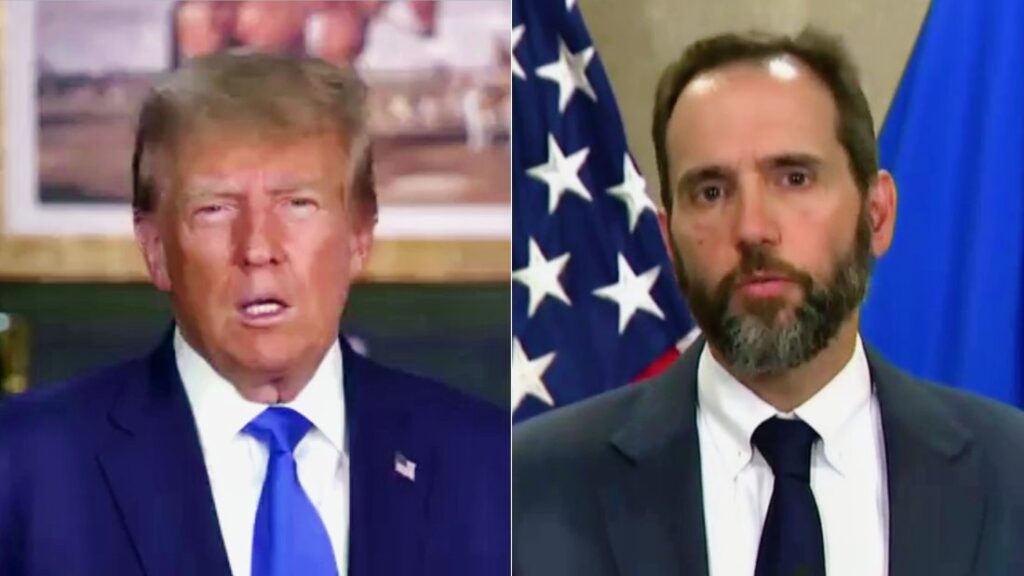Days after unveiling new material allegedly linking former President Donald Trump to the January 6th, 2021, Capitol riots, Justice Department special counsel Jack Smith is facing new criticism, including from a CNN legal analyst who warned that his recent actions could jeopardize his entire case related to the J6 events.
Elie Honig, the CNN contributor who for months has said that Smith’s case is on thin ice, wrote in the Intelligencer Friday that Smith, having “failed in his quest to try Donald Trump before the 2020 election,” is now “bend[ing] ordinary procedure to get in one last shot, just weeks before voters go to the polls.”
The transgressions committed by Smith are many, Honig writes, but primary among them is his political strategy to “chip away at Trump’s electoral prospects” by any means necessary, even if it means employing supra-legal methods. Having failed to prosecute Trump on the immunity argument, Smith is now relying mostly on “unprincipled, norm-breaking practice[s]” to blemish Trump in the eyes of as many voters as possible, not a jury, according to Honig.
Earlier this week, Smith requested permission from U.S. District Judge Tanya Chutkan to submit a 180-page brief detailing what he argues are instances of Trump being fully aware of the dangers posed by the violent rioters on January 6th. Honig, a former federal prosecutor himself, pointed out that this submission exceeded the maximum allowable length for court filings by four times. He also noted that Smith’s procedure was incorrect:
First, this is backwards. The way motions work – under the federal rules, and consistent with common sense – is that the prosecutor files an indictment; the defense makes motions (to dismiss charges, to suppress evidence, or what have you); and then the prosecution responds to those motions. Makes sense, right? It’s worked for hundreds of years in our courts.
Not here. Not when there’s an election right around the corner and dwindling opportunity to make a dent. So Smith turned the well-established, thoroughly uncontroversial rules of criminal procedure on their head and asked Judge Chutkan for permission to file first – even with no actual defense motion pending. Trump’s team objected, and the judge acknowledged that Smith’s request to file first was “procedurally irregular” – moments before she ruled in Smith’s favor, as she’s done at virtually every consequential turn.
With little more than accusations and conjecture, Honig went on to write, Smith has basically shifted to prosecuting his case in the court of public opinion which is “prejudicial to Trump, legally and politically.” Ironically, “Smith has complained throughout the case that Trump’s words might taint the jury pool,” but now Smith appears to have committed the same ‘offense.’
“Yet Smith now uses grand jury testimony (which ordinarily remains secret at this stage) and drafts up a tidy 165-page document that contains all manner of damaging statements about a criminal defendant, made outside of a trial setting and without being subjected to the rules of evidence or cross-examination, and files it publicly, generating national headlines. You know who’ll see those allegations? The voters, sure – and also members of the jury pool,” Honig wrote.
Also significant is Smith’s breach of a fundamental principle of the DOJ: to avoid prosecuting or conducting practices that suggest political motivations. The timing of his filings closely resembles the approach taken by former FBI Director James Comey during his 2016 investigation into Hillary Clinton’s emails, which occurred just before the election.
“What’s the distinction? Both violated ordinary procedure to take public steps, shortly before an election, that plainly would have an impact on that election,” Honig writes. He quotes a DOJ alum who explained Smith’s predicament: “To me if it [an election] were 90 days off, and you think it has a significant chance of impacting an election, unless there’s a reason you need to take that action now, you don’t do it.”



